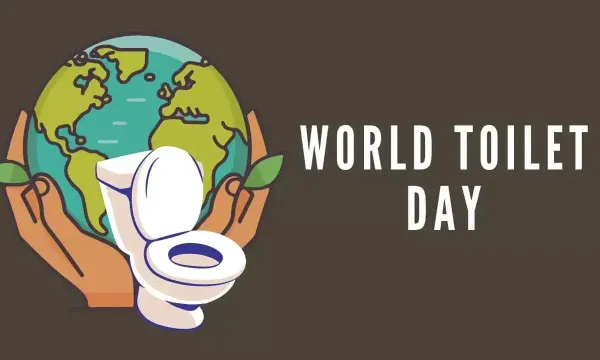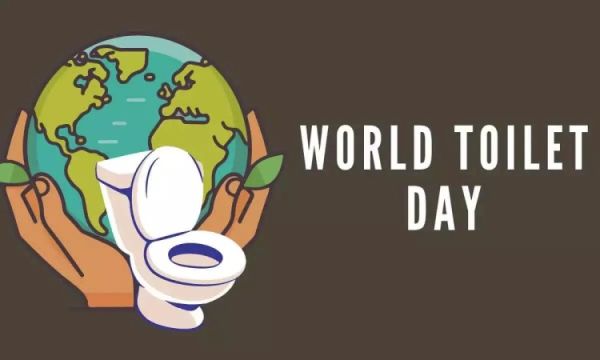
World Toilet Day raises awareness of the global sanitation situation and calls for cooperation to guarantee that everyone has access to clean restrooms. The Sustainable Development Goals (SDGs) of the UN, which call for universal access to sanitation by 2030, are in line with this observance. Remarkably, more than 3.5 billion people still lack access to proper sanitation facilities, and a great number of children die avoidably as a result of contaminated water and inadequate hygiene.

The day promotes solutions to enhance living circumstances and safeguard public health worldwide by drawing attention to these problems.
“Toilets – A Place for Peace” is the 2024 theme.
The 2024 topic, “Toilets – A Place for Peace,” tackles the growing threats to sanitation that come from neglect, natural catastrophes, wars, and climate change. Life-threatening illnesses may arise from trash spreading due to damaged or destroyed sanitation facilities. The subject for this year emphasizes how important safe restrooms are to preserving health and safeguarding communities, especially in times of emergency.
The Background of World Toilet Day
The World Toilet Organization (WTO), which was started by Jack Sim, created World Toilet Day in 2001. Due to Singapore’s cooperation with the WTO in creating the “Sanitation for All” resolution, the day was officially acknowledged by the UN in 2013.
The resolution urged countries to enact laws to stop open defecation, a practice that is harmful to public health and safety, and provide impoverished populations access to secure restrooms.
The Significance of World Toilet Day
A fundamental human right, sanitation is necessary for safety, dignity, and good health. Vulnerable populations, such as women and children, are disproportionately affected by illnesses that are transmitted by contaminated waste from inadequate sanitation systems.
Enhancing sanitary infrastructure guarantees:
• Improved health results by stopping the spread of illness.
• More safety and privacy, especially for girls and women.
• A greater ability to concentrate on everyday living, employment, and education without health issues.
• Improving sanitation worldwide is essential to promoting sustainable development and human rights.
The Benefits of Sanitation for Public Health
Access to safe restrooms and good hygiene habits are essential for avoiding illness and fostering wellbeing. Sanitation and clean water lower the risk of waterborne infections and promote community health.
By reducing healthcare costs, individual efforts to practice good hygiene may also have a positive societal and economic impact.
India’s Position and International Initiatives
India has made great progress in preserving its position as an Open Defecation Free (ODF) country. In order to overcome gaps in sanitary infrastructure, World Toilet Day is observed with grassroots efforts including registration campaigns and surveys. For qualified households, these initiatives guarantee the prompt building of Individual Household Latrines (IHHLs).
India’s “Hamara Shauchalay: Hamara Samman” campaign begins this year and runs from November 19 to December 10. The program emphasizes privacy and dignity, especially for women and girls, and draws attention to the connection between sanitation and human rights.
World Toilet Day provides a forum for governments, organizations, and people worldwide to come together in support of sanitation as a basic human right.
We can create a more healthy and just world by increasing awareness and acting to guarantee that everyone has access to sanitary facilities that are both dignified and safe.